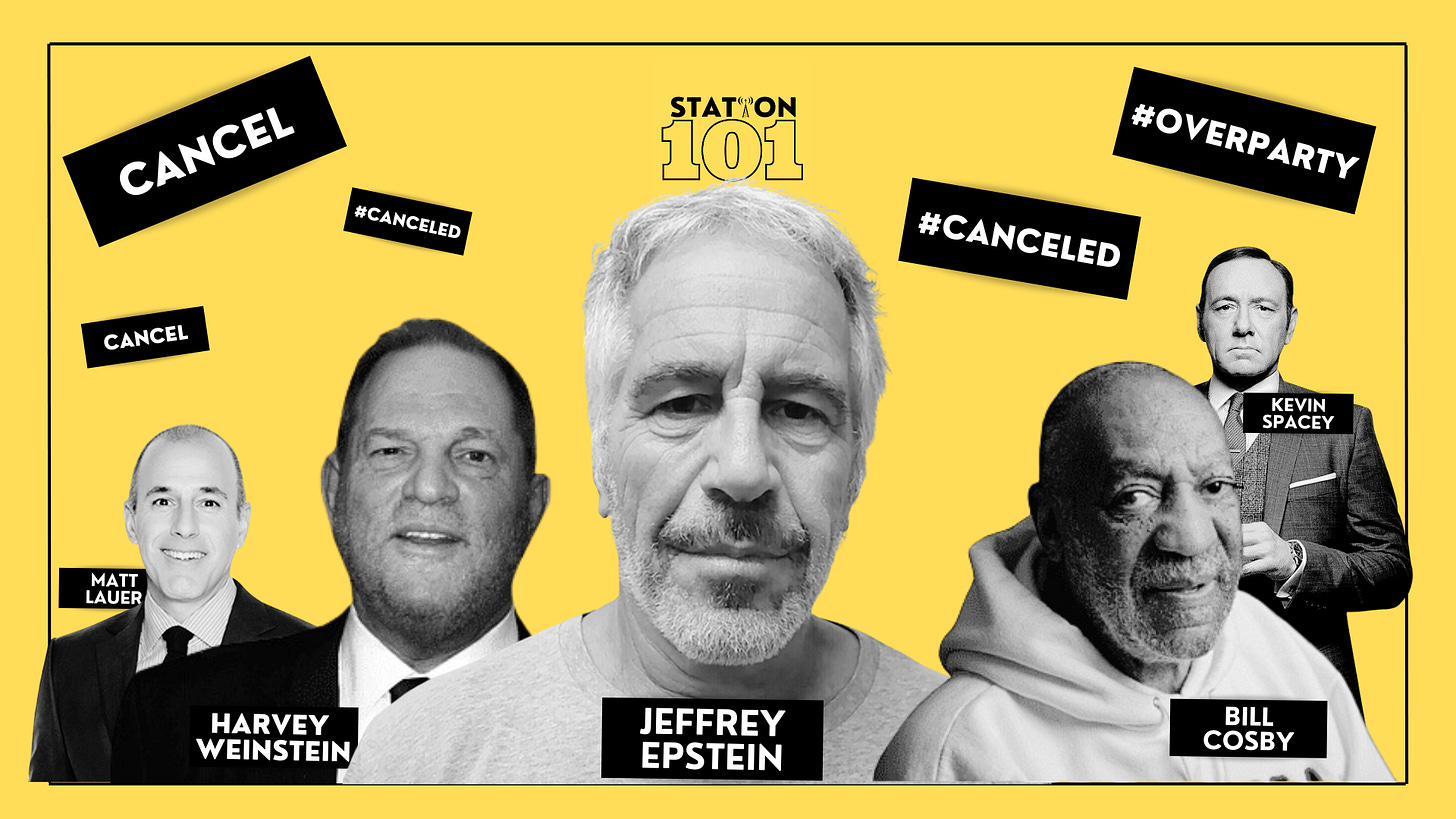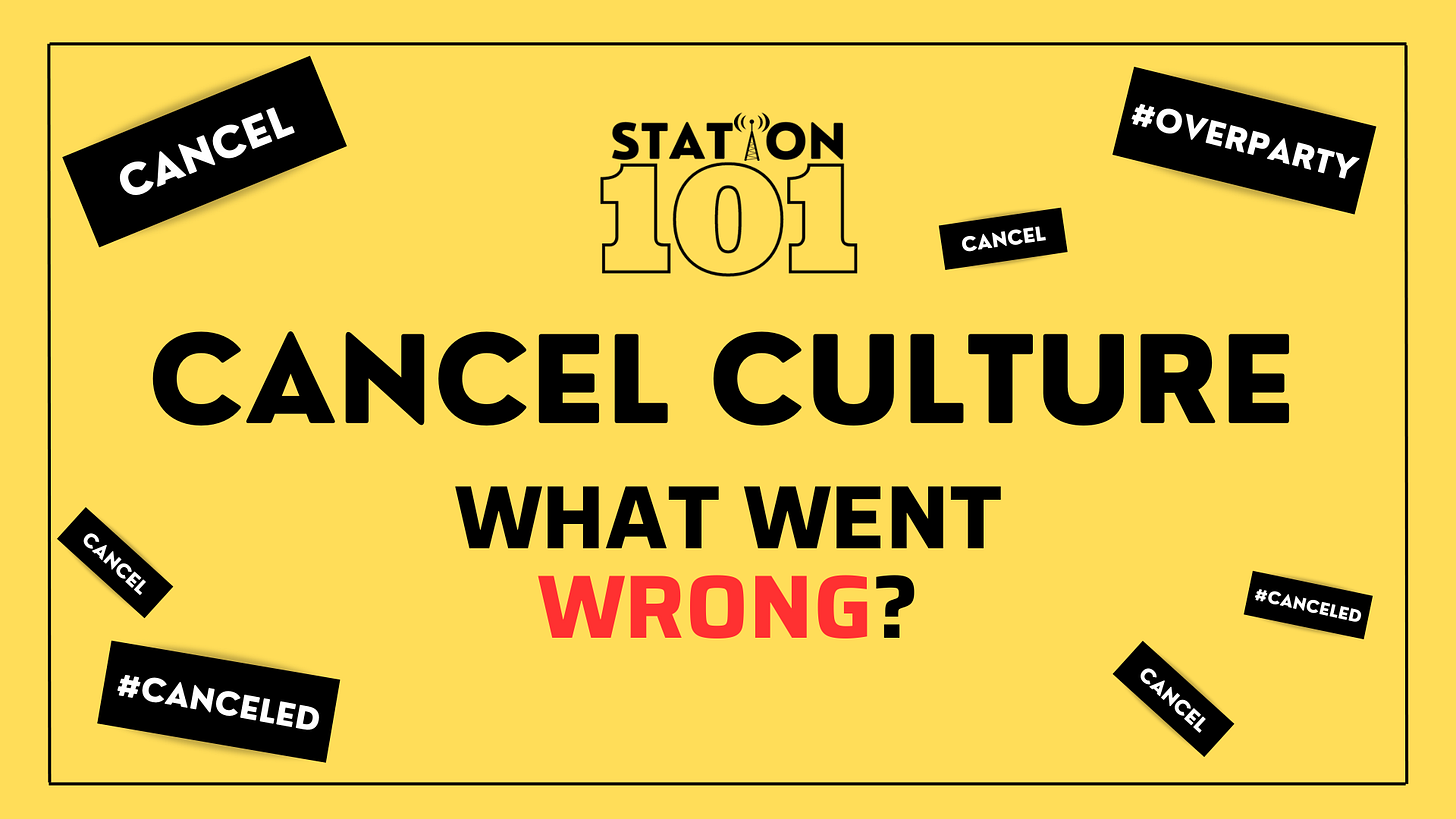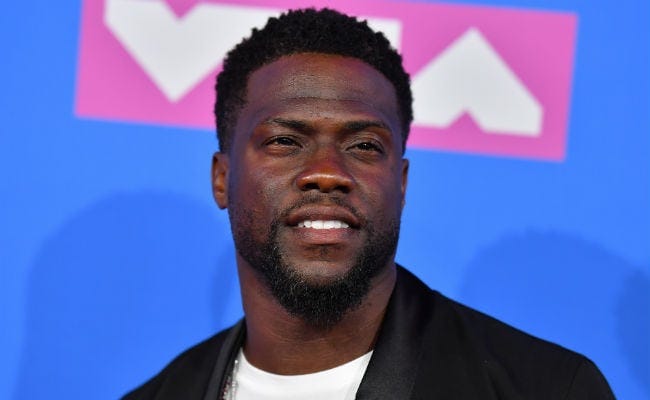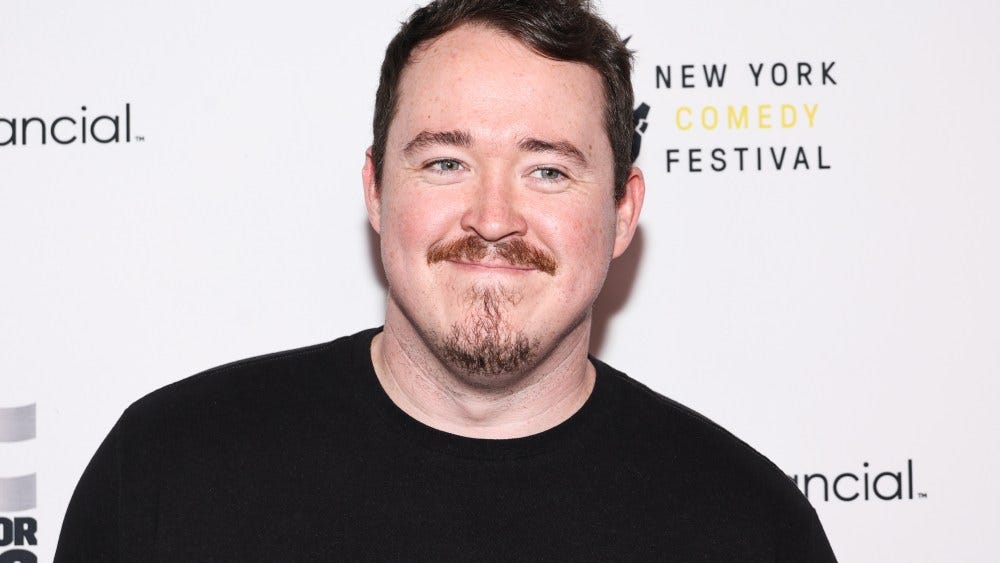Have you ever heard of this phrase, “Cancel Culture”, before? Or maybe you have seen an trending hashtag on Twitter that says #XXXisoverparty once, but you keep wondering “What is it about?”
The truth is, Cancel Culture was not invented recently, as this “culture” is believed to appear on mainstream somewhere in 2010s. But the reason why most people assume it’s something new is because this herd behaviour only reached its highest halls of power when the Internet and other social platforms are considered ubiquitous in this modern age. So this time, sit back and let’s discuss about Cancel Culture.
Before you read: This article is mainly based on my own observation and opinions, information from various sources will be used for reference but it might contain holes and shortcomings. Read at your own discretion.
1. What is it?
As of now, according to common belief, “Cancel culture” or “Call-out culture” refers to the act of condemning one or more individuals for their perceived wrongdoings or actions deemed morally unacceptable by the public, which could lead to mass boycott.
According to a online newspaper called Vox, the concept of canceling someone has been around since 1990s, originated from a rather misogynistic joke. The first time “canceling” made its debut on media was in the 1991 film New Jack City, featuring Wesley Snipes plays Nino Brown the gangster. In one particular scene, after his girlfriend melts down because of his violent acts, he broke up with her by saying, “Cancel that b*tch. I’ll buy another one.” [1]
The word then made its next appearance in a TV show called Love and Hip-Hop: New York that aired in December 2014. It was in one of the episodes where Cisco Rosado, a cast member, responded to his love interest, Diamond Strawberry, while she was yelling at him, “you’re canceled.” Cisco then confirmed his saying was inspired from the 1991 movie, “I was just watching New Jack City the night before I met with her that day…” [2]
The word then had its big boost into the online space, making itself a catchphrase and sinking into the zeitgeist. And ever since, it has been used to jokingly describe one’s disapproval over someone’s saying or doing, especially in the black community. [3]
It appeared to emerge again in 2017, only in a much larger and more serious scale this time. It was when the infamous Harvey Weinstein was accused of performing non-consensually sexual advances towards his female staff, co-workers, assistants back in 2017 [4]. There were roughly 80 women stood for themselves against this filthy trash of a man, and gradually, they have created a movement where more and more women started to find their courage to stand up and raise their voices against injustice, harassment and abuse. That movement was called “#Metoo”. Since then, the public witnessed a lot more similar movements calling out sex offenders in various industries or even celebrities whose misconduct got exposed to the world, such as: Bill Cosby, Kevin Spacey, Matt Lauer, Jeffrey Epstein, Lizzo, etc.
With their careers being blown out (or almost) like a candle, the public has started to embrace the power of “speaking up”.
2. Why is it essential?
Cancel culture is a response to offensive behaviours or transgressions perpetrated by a celebrity or company, hence it is a form of public deterrence in order to hold them accountable. If it weren’t for this call-out culture, a lot of heinous crimes and controversies would likely be swept under the rug and the victims might as well stay muted for the rest of their lives.
Living in this modern world where social platforms are ubiquitous, of course children and young adults are more susceptible when it comes to online toxication, especially if it is condoned by someone of celebrity status or high influence. One shining example of such a case is SSSniperWolf.
Long story short, on October 13th 2023, SSSniperWolf - a YouTuber with over 30 million subscribers, has publicly doxxed another Youtuber, Jacksfilm, after months of being called out for stealing contents on the platform. She allegedly took a photo of Jacksfilm’s house and uploaded it to her Instagram, exposing him to her millions of followers.
Doxxing is an act of publicly providing personally identifiable information about an individual or organization, usually via the Internet…[5]
Later, an old video of SSSniperWolf got circulated on the Internet again, in which she was asking a young female fan to engage in explicit behaviour on another social platform called Omegle. This has been called out by a Twitter account named Zack James, quote:
“W.T.F. @sssniperwolf got an underage girl to flash her boobs to her on Omegle and the video is STILL up?! I won't even post the screenshot. It's that bad. This moment takes place at 2:28 in the video shown in the attached image.” [6]
So, someone of high status posing a great threat to others by performing offensive actions? All the boxes are checked. People immediately started canceling her. Though this “calling-out” session did not achieve any profound success since Youtube was believed to overlook the situation, the public rage has managed to get the attention of concerned parents.
Apparently, Cancel Culture is essential on the Internet space as a way to uphold the safety and raise awareness within the community about harmful and hurtful interactions, regardless of whether they involve children or adults. But is Cancel Culture always on the good side?
3. Then…What’s wrong with it?
It wasn't until now that this culture actually started to spread what it was trying to eliminate: toxic behaviour. Time travel back to the 2004 with the infamous Super Bowl accident, which was shamingly called “N*pplegate”, featuring Janet Jackson and Justin Timberlake.
For those who don’t know, in the last act of the performance where Justin was supposed to tear off the exterior layer of Janet’s outfit as scripted, he accidentally (or not?) snatched off a large piece of her costume, exposing Janet’s whole right breast to the public, on live TV. And the aftermath? Well, Justin walked away unscathed while Jackson got canceled so bad that her career almost collapsed completely.
To this day, I still believe what actually drove this act of condemnation to a more negative side was how people start finding almost everything cancel-worthy, as long as it appears to be…wrong. And gradually, the idea of culturally blocked one’s online presence or end one’s career just turned into an act of self righteousness. While some people believe in this made-believe sense of power over another's social life or professional trajectory, the fact that this herd behaviour could both physically and mentally harm someone has validated their belief.
On one side of the spectrum, we have people calling out Logan Paul for uploading inappropriate content to his young audience [7]; on the other side, we have Goo Hara - a South Korean celebrity getting canceled for going against the industry rules (dating ban), even though she was reportedly being blackmailed with revenge porn by her ex-boyfriend. Goo Hara unalived herself after the relentless public shaming.
Adding fuel to the already scorching flame is the fact that people started normalizing the abuse of this culture, encouraging them to hand out too many 'cancels' without considering both sides of the story.
As this wildfire spread, I think it’s safe to say that “Cancle Culture” is not an exclusive “privilege” for celebrities or prominent figures anymore, as it has slithered its way into one of the most sacred lands, schools. A local newspaper in Vietnam has reported an incident involved a group of 13-year-old students deliberately boycotted and bullied their classmate both online and offline. The reported victim committed suicide afterwards, but luckily, she was saved just in time. [9]
But does cancelling always work like people want it to? Of course not! For example, Kevin Hart. The past homophobic and racist jokes he made have resurfaced again after he was announced as host for the Oscars 2019 and apparently, people were mad about it [10]. Hart received so big of a backlash that he withdrew himself from the hosting the Awards, however, despite the attempt to cancel him, his movies and stand-up specials continued to be successful once the controversy subsided.
Similarly, Shane Gillis was promptly fired from the cast of Saturday Night Live due to his offensive humor [11]. However, following his departure, he continued to receive support and applause at comedy shows, endorsed by fellow comedians like Rob Schneider and David Spade [12]. Remarkably, he was even invited to a podcast with Democratic presidential candidate Andrew Yang [13], transforming his racism into a teachable experience.
Oh, and Netflix has just bought his comedy series recently. [14]
Final words?
“Cancel Culture” wasn’t born evil. It’s simply an act of expressing objection against injustice in order to hold people accountable for their actions, a form of social activism and a means of promoting fairness and responsibility.
However, in reality, this culture appears to be very difficult to control. The fact that it can be easily manipulated and used by certain individuals with impure motives has proven that this culture is now being abused, which makes it become excessive, punitive, and prone to mob mentality as it no longer represents what it used to.
The victims of this culture included almost everybody, from politicians, celebrities to ordinary people, posing great threats of violent protests, objections and exacerbation of other societal issues. Even worse, it could lead to political insecurity, social order disruption, and community solidarity loss. The consequences left behind often range from serious to very serious in every industry, leading companies and individuals subjected to boycott into suffering, harm, loss of confidence, and may result in negative impacts on their mental well-being.
But with the numerous “cancels” people are handing out indiscriminately, the words become less meaningful. When an actual crime happened, will our screams be heard or will it be ignored, like the boy who cried wolf?
Reference:
[1]
[2]
[3] https://www.vox.com/culture/2019/12/30/20879720/what-is-cancel-culture-explained-history-debate
[4] https://en.wikipedia.org/wiki/Harvey_Weinstein_sexual_abuse_cases#Background
[5] https://en.wikipedia.org/wiki/Doxing
[6] https://twitter.com/ZackJamesOBZ/status/1714902255730852081
[7] https://www.buzzfeednews.com/article/tanyachen/parents-react-to-paul-logan-suicide-forest-video
[8] https://www.popsugar.com/celebrity/taylor-swift-kanye-west-kim-kardashian-feud-details-42002630
[9] https://giadinh.suckhoedoisong.vn/bi-tay-chay-tren-mang-be-gai-hoc-gioi-co-hanh-dong-khien-bo-phai-khoc-ngat-cha-me-dung-xem-thuong-nhung-chuyen-tre-con-172230430064408413.htm
[10] https://www.ndtv.com/entertainment/oscars-2019-kevin-harts-homophobic-tweets-resurface-after-he-is-announced-as-host-1959051
[11] https://www.nbcnews.com/news/shane-gillis-saturday-night-live-fired-now-hosting-rcna137161
[12] https://www.yahoo.com/entertainment/david-spade-snl-shane-gillis-fired-185842413.html?guccounter=1&guce_referrer=aHR0cHM6Ly93d3cuZ29vZ2xlLmNvbS8&guce_referrer_sig=AQAAABnEHgGoywsQhLawLKuUUX6c9cZwc61saSBYaCO48obsxe1sTiZ5Lrl5XvbC2rsH_BZ8HmE5X2mUGajdTfFt9sAKavYBPOFA_vT8xfNS-dlTZq63MMn-55RACo41NYtRUqWMw73gBCuYuKgwlXkMfUxkesKVuHMtxTX1T8keoNOo
[13]
[14] https://variety.com/2024/tv/news/netflix-shane-gillis-tires-comedy-series-may-1235922369/















This is a well thought out and researched article. I've written about cancel culture before as well; I hate it for the way it encourages mob mentality and how people who engage in this sort of "social justice vendetta" or public shaming think they're actually doing the world a favour and then move on with their lives without any consideration for the person they're attacking. Sometimes, as you mentioned, the things that are dragged up are from the past, or there are nuances not taken into account. Either way, it's impossible to know what's really going on based on the small percentage we see of someone's online life.